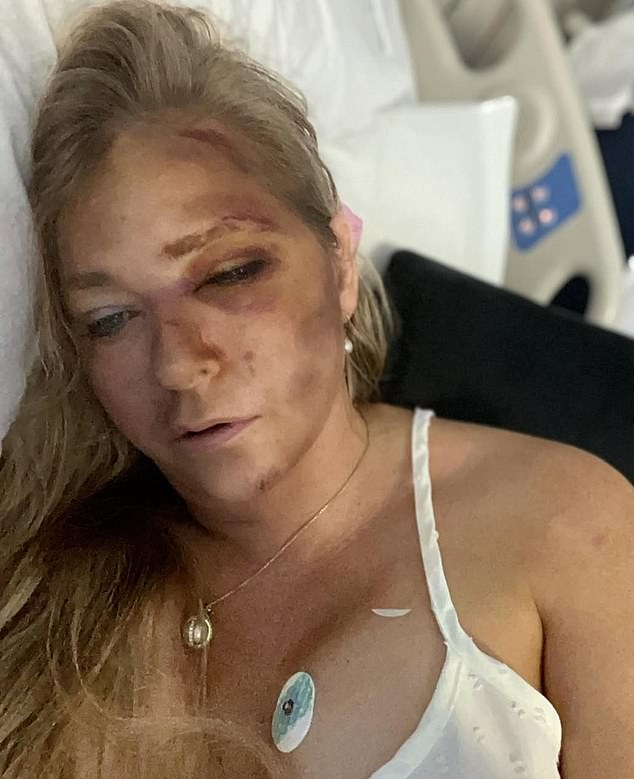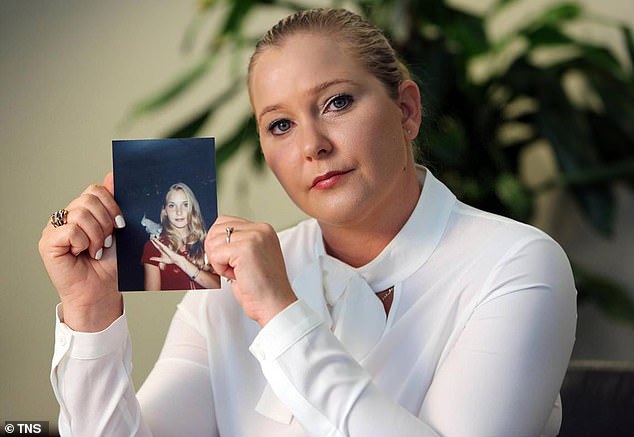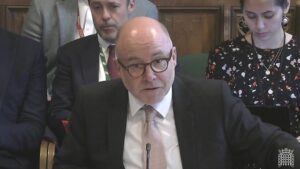By ROBERT JOBSON
Published: | Updated:
Virginia Giuffre has claimed she is dying.
In a dramatic hospital-bed post shared to Instagram, the woman whose sexual assault allegations helped sink Prince Andrew’s royal standing says a school bus smashed into her car, that she’s now in kidney failure, and may not live to see her children again.
A gut-wrenching image accompanies her anguished words. On the surface, it seems a cruel final chapter in an undeniably tragic life – a girl abused and trafficked by Andrew’s evil friend and convicted paedophile Jeffrey Epstein, silenced, then scorned when she spoke out.
But as with so much surrounding Giuffre – formerly Virginia Roberts – something doesn’t seem to stack up.
Australian police describe the crash as minor. No significant injuries were reported. No confirmation was offered of any critical condition.
It’s a huge discrepancy, and one that really matters – not just for public understanding, but for the credibility of a woman whose testimony has long been the cornerstone of a devastating royal scandal.
Giuffre has never been an easy witness.
Her history with Epstein is not in doubt. But her account of events involving the Duke of York has shifted over time, raising legitimate questions.


Some of her claims were previously thrown out of US court filings – not necessarily because they were false, but because they didn’t meet the legal threshold of relevance or accuracy.
And accuracy, or the lack of it, has been crucial.
Over time Ms Giuffre has misidentified alleged abusers, so much so that a US judge struck her affidavit from the record altogether.
None of this exonerates Andrew. His friendship with the late Epstein and Epstein’s former girlfriend Ghislaine Maxwell, now serving 20 years for sex trafficking, remains deeply troubling.
His BBC Newsnight interview was a self-inflicted disaster that rightly sealed his fate as a working royal.
He is a man forever synonymous now with Woking Pizza Hut and not being able to sweat (even when photos show he does).
What is more, his failure to cooperate fully with US authorities has not helped his cause; leading some to say there is no smoke without fire.
Surely, we should look to the evidence. And in this case, it all hinges on his accuser being a credible witness; if she isn’t his claims of innocence might not ring quite so hollow.



After all, he was never found guilty. He wanted to fight in court but given that the late Queen’s Jubilee would have been ruined if he did so, he was ordered not to by the powers that be.
Andrew settled out of court – reportedly for £12million – but has always denied wrongdoing.
The lucrative settlement meant that Ms Giuffre’s claims, the ones that destroyed his public life, were never tested in cross-examination.
Now, with her sensational injury claim under scrutiny, a new question looms: If her latest story is exaggerated – or worse, invented – what does that say about the others?
For Prince Andrew, this could be the first moment in years where public opinion begins to shift.
Not towards redemption – the Epstein stain is indelible – but perhaps towards a reassessment.
A possibility, however faint, that he wasn’t lying.
This isn’t about exoneration. Far from it. It’s about the weight of credibility. And in the court of public opinion, that counts for everything.
If Ms Giuffre’s injuries are real and as grave as she says, she deserves empathy, privacy, and peace.
But if the story of how the injuries were sustained has been embellished or is untrue, the damage will be not only to herself – it will also reverberate across every abuse survivor’s case and every effort to hold the powerful to account.
And yes, it may give Prince Andrew something he’s not had in a very long time: the benefit of the doubt.







